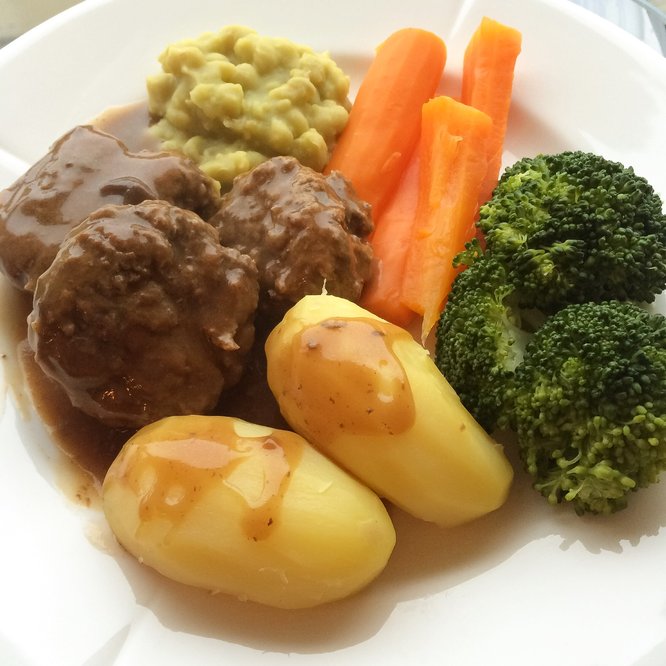Tuesday, November 5, 2019
Eat healthier, lower quality of life
Almost regardless of which newspaper or online magazine you read today, you are bombarded with various dietary tips. Either it is these "super-healthy" foods that you should eat more of, or they are often the "dangerous" foods you should eat less of, and sometimes you want to cut out completely. But, who is really right, and what does the word really mean?
EAT YOURS AND AVOID THAT
It's no wonder you get confused when one week you can read that carrots are carcinogenic and should therefore be avoided, before we can read in the same newspaper, just the week after, that we need to eat more carrots. Why? Yes, because it is probably good for you.
How often have you not heard this: "If you are going to lose weight, you have to cut out all your favorite foods, and at least gluten, pizza and chocolate"? I tear my hair every single time I hear this. It is, in fact, completely misleading and very, very wrong.
In my job as a personal trainer and dietitian, I guide and coach people with different conditions, desires and needs on a daily basis. Some of them have a goal of losing weight, and guess what? They eat both gluten, pizza and chocolate, AND they lose weight. They do not eat it every day, and not a 200 gram chocolate plate every time. But a little sometimes, and in moderate amounts.

HEALTHY OR UNUSED - FOR WHO?
What is known as "healthy" and "clean" food largely depends on who you ask, and not least who is going to eat the food.
If you ask a low-carb guru about which foods to stay away from, the answer would undoubtedly have been carbohydrates and sugars. If you ask a vegan about the same, he or she might have listed twenty different reasons as to why exactly you should stay away from all animal products. you ask a fitness practitioner if your mom's homemade meatballs are healthy, he or she will most likely be able to roll his eyes at the same time as he or she pulls in a packet of rice cakes. And so it goes.
The idea of classifying foods as healthy or unhealthy is basically irrational, and often (read: almost always) lacks scientific evidence to substantiate this.
INDIVIDUAL DIFFERENCES
There are also great individual differences between us humans. Something that is "healthy" for one person does not necessarily have to be "healthy" for another. Take, for example, an athlete who practices several hours a day, and therefore needs quick nutrition between sessions. Then maybe a sugary sports drink may be just what it takes. But, for an obese, inactive person with type 2 diabetes, maybe that sports drink is not "healthy" anyway?
I get a lot of questions every day about what is best for you and what, and what is most optimal to either eat or exercise. The answer is almost always the same: "it depends". One has to look at the whole picture. Not just the exercise and the diet, but life in general. After all, don't forget that exercise and diet have to be adapted to it after all.
THE DANGEROUS GLUTENET
It has almost become "in" to have gluten allergy at the moment, but is it really that it's gluten's fault that we keep getting fatter and fatter?
Of course, there are some groups of people who should avoid certain types of food due to medical reasons. This applies, for example, to those who have been diagnosed with celiac disease, who must then avoid gluten-containing foods. However, this applies to a very small percentage of the population. It does NOT apply to Aunt Magda at 50, who has found out she gets fat from the two gluten-containing bread slices she eats for breakfast, but forgets that she eats over 1 kg of chocolate on the weekends, with gluten. Often, foods without gluten will contain MORE calories than similar foods with gluten will do. So, if you are healthy and can withstand gluten, there is actually very little reason to cut it out.

EAT SMART - FOOD JOY
Having a "healthy" diet does not necessarily have to be rocket research, and unfortunately I think we tend to complicate it too much. In order to have a so-called "healthy" diet, the food should be varied, contain well with vitamins and minerals, and that you get the amount of food your body needs. Depending on, among other things, goals and activity level.
Eat foods you like, and please do not force yourself into a box of cottage cheese, which you cannot really demand, because some nutritionist has said that you need it to lose weight. You should also not eat spirulina for every meal, nor starve yourself five days a week, and then eat the other two. Do you get lucky in your soul of the one sliced slice of Nugatti for Saturday breakfast? Well, then you eat one slice, and then life goes on.
AVSLUTNIGNSVIS
So, can we really conclude something here? One thing that almost all so-called "experts" agree on is that vegetables are good for you.
In fact, you don't automatically become fat from carbohydrates, or sugar. You also don't automatically get fat from eating fat, or the one chocolate you treat on Saturday night. You become fat from too much food over time. I would also dare to say that some of what matters most in being able to say whether something is healthy or unhealthy is just the amount. You can get fat from the chicken fillet too, you just have to eat enough of it.

[…] If you consistently take advantage of the chance to get some extra exercise in your everyday life, such as taking the stairs instead of the elevator, you’ll quickly save a few hundred calories. […]
ReplyDelete